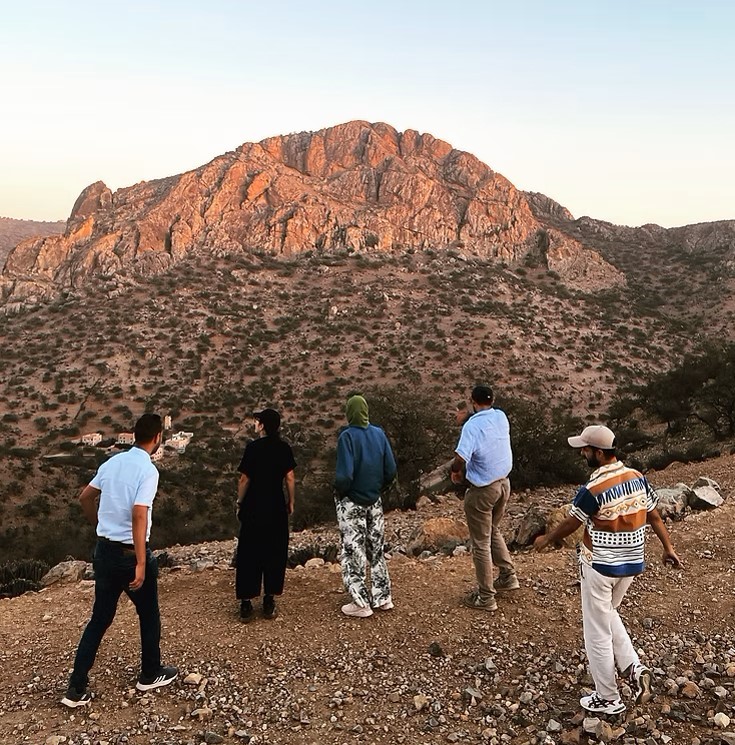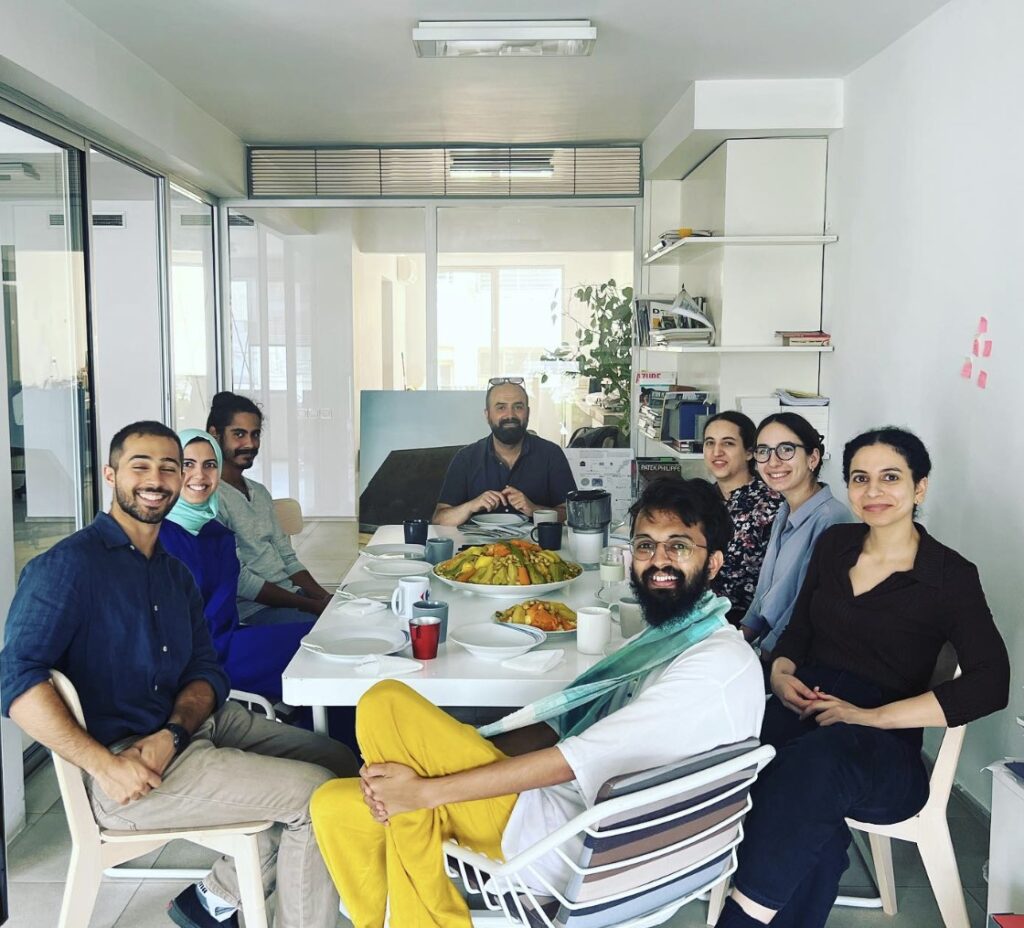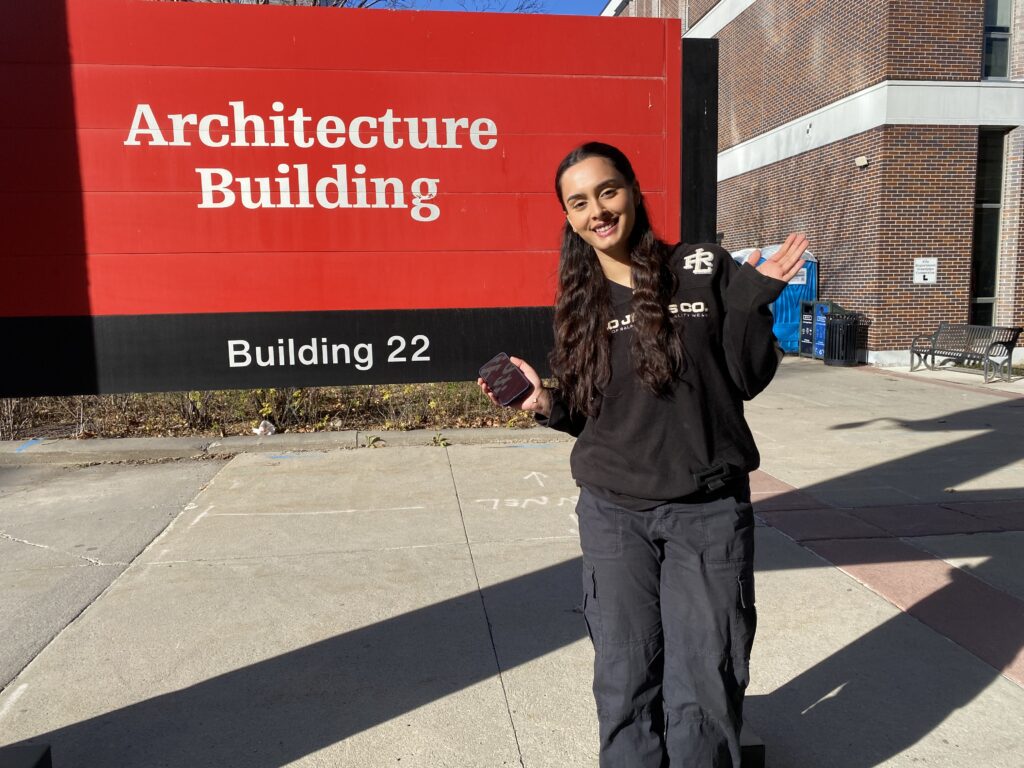Co-op program connects students with employers
By Maria Cook
December 2, 2024
For many students, finding a first job is tough. Who to apply to? How to go about it? When to look? And if they try, how to feel about all the ”no thank yous” and no responses? At the same time, employers often say they need help and want new graduates to have skills that can be quickly useful in an office.
Co-operative Education is a program at Carleton University designed to help students obtain work experience before graduating. With Carleton’s Co-op Office, the work environment for undergraduates can be more supportive. And new graduates with prior experience fare much better in the work world.

“Research shows that if you do co-op, you’re more likely to get job in your field, more likely to stay with that employer for longer, and more likely to earn a higher salary,” says Co-operative Education Manager Katie LeBlanc.
The experience can help to confirm the choice of architecture as a career, to expand understanding of what being an architect could be, and to refine direction within it. Fourth-year student Hasan Hirji explains: “l became aware that while I am definitely in the ‘right’ field for me, it was much more open in terms of possibilities than I had previously imagined. This experience has made a very large world feel both more accessible and, also, much larger.”

Hasan Hirji
Hasan Hirji was open to work internationally as well as Canada. He found both with Aziza Chaouni Projects in Morocco and ERA Architects in Toronto. Both offices are involved with architectural heritage in the contemporary world. In Morocco, he found himself working on a report about historic settlements in Arab regions, digital mapping in downtown Ouagadougou in Burkina Faso, and community engagement workshops in southern Morocco. To his surprise he discovered how useful office time management skills are when you return to school. “It was a completely different educational experience in which time management and communication were of equal value to the most technical architectural lessons learned in university.” Read more.
Speaking with four Carleton architecture students, who have just returned to school after co-op, their enthusiasm is consistent though their jobs were diverse.
Hasan Hirji was engaged with heritage work at an office in Morocco and another in Toronto. Baljot Jagdev worked for a small urban design firm in Toronto. Maya McManus interned with a developer in Ottawa. George Gialouris-Tsivikas was with a multinational architectural practice in Toronto. All are currently 22 years old.
“My advice to students considering co-op is don’t consider, just apply,” says Hirji. “It is an invaluable experience.” Jagdev adds: “Real-world experience offers a different kind of knowledge that can’t be learned in the classroom, and it will enhance your perspective as a designer.”
Carleton’s co-op program began in 1988. The architecture school joined in 1999. Since then, the number of architecture students taking part has increased greatly, doing work placements locally, across Canada, and internationally. Over the past 10 years, 318 students enrolled in the co-op program have found jobs, increasing from 37 students in 2014-15 to 101 students in 2023-24.
Samantha Irvine, Senior Associate of ERA Architects which employed Hirji, observes “We were delighted to learn how closely his education at Carleton mirrored the real-world work we do at ERA.”

Maya McManus
Maya McManus is in the Urbanism stream of the Bachelor of Architectural Studies program. As she puts it “Before going into co-op, I was very much on the fence about pursuing architecture after undergrad. Her co-op experience with Minto Group, an Ottawa-based housing developer “gave me the perspective and confidence I needed.” From being unsure of direction and her ability to contribute at first, Maya found herself doing work which was interesting and valued. She was exposed to the diverse disciplines that are part of design and development, and the years that projects take to be realized. She is drawn to development and hopes to pursue planning after completing her undergraduate degree. Read more.
The Azrieli School of Architecture & Urbanism is actively promoting the growth of the program. Director Anne Bordeleau sees it as “strengthening links between school and profession, and making sure students are better prepared for those opportunities.”
A total of 187 unique organizations have hired architecture students over the past 10 years — 158 are private sector and 28 are public sector.
“Perkins&Will has observed positive outcomes from hiring Carleton students including high quality work and innovative thinking,” says the company’s Associate and Talent Manager Cody Wainstock. “Many co-op students return and transition into full-time roles, building long-term relationships with the firm and our people.”
Alumni from Carleton’s school of architecture are now part of practices across Canada and are key to the program’s success. The school is encouraging both offices and current students to participate. The school’s first Shop | Talk career fair, held Nov. 7 was attended by about 200 students and more than 50 professionals representing 24 architecture firms and organizations.
Co-op is an option for all Bachelor of Architectural Studies (BAS) students who meet eligibility criteria listed on the Co-op website. Students complete their work terms between their third and fourth years, so are more mature and skilled than they would be earlier in their studies. While four-month terms are also available, most architecture students work eight, 12, or 16 months — long enough to gain useful experience in an office, which can be difficult with short placements.

“Our project timelines typically span multiple years, so we offer 16-month co-op placements, allowing students to see how a project progresses,” says Kiara Gonzales, Land Development Manager at Minto. “Since 2015, we have had great experiences with students who have joined our team, some of whom we have continued to work with after graduation. We are always looking for new talent and hope to continue participating in the co-op program.”
Those who successfully complete 12 months receive the Co-op Designation on their degree. The degree will take at least one year longer to complete. In 2024, 39 students graduated with a co-op designation.
Students pay program fees to participate in the program. They must attend the COOP 1000 course, which prepares undergraduates for their job search and transition to work. The co-op office posts opportunities to the co-op job board. Students hear about jobs and employers receive applicants.

Baljot Jagdev
Baljot Jagdev worked in a Toronto urban design firm called Urbantypology. Working on city projects made it clear to her that design must include both client and community needs. As it is a small office, Baljot was exposed to many different aspects, including market research, technical drafting, visual presentations, and both independent and teamwork. She observes: “While the job focused more on the urban design scale, the experience reminded me of how important architecture is within urbanism.” Read more.
To complement the efforts of the Co-op office and ensure students receive support in line with the disciplinary realities, faculty members at the school have been providing portfolio tips and reviews or advice and connections to firms they know.
The Co-op office says about 85 percent of co-op participants get their job placement through the co-op office. Co-op staff also help students with self-directed job searches. About 15 percent find employment on their own and then formalize it with the co-op office. “The real-world job search skills that these students gain as a result, will support their future career success,” says LeBlanc.
On the job, the office supports students with workplace check-ins, site visits, and resolving potential issues. Participants submit Work Term Reports at the end of each four-month period.
Urbantypology, which employed Baljot Jagdev, has had three co-op students from the school’s urbanism stream since 2022. “It’s a joy to see them engaged with projects,” says Raymon Yim, founding principal. “Their energy and enthusiasm add to the studio culture. It’s our belief that the more they experience and face and learn from challenges, the better designers they will become.”
The program also helps employers. Private companies in Ontario, Quebec, and Manitoba may be eligible for a provincial tax credit equal to a percentage of the co-op student’s salary. The co-op office provides a salary guide. For architecture students last year, the average was $22.08 per hour and ranged from $15.50 to $28 per hour.

Georgios Gialouris-Tsivikas
Georgios Gialouris-Tsivikas is excited to be back at school, but he also misses his projects and colleagues from his year at Perkins&Will in Toronto. “I am so certain that this is the right thing for me. Not only can I do it, I can succeed in it,” he says. “It is a big relief to finally find some confidence.” Georgios had spent a great deal of time looking for an office which aligned with his interests in sustainability, public spaces, and had a recognized design identity. At his job, he was able to be on teams for a school, a sports arena, and transit stations and enjoyed “the collaboration involved in the process, and the real-life stakes and consequences.” Read more.
“It was a pleasure to have a Carleton student join my office in Fez, Morocco,” says Aziza Chouani, founding principal of Aziza Chouani Projects. “Hasan had unique research and writing skills and played a crucial role in our research project with UN-Habitat on the rehabilitation of housing in historic centres in the MENA region.”
She adds: “I try to share with students that architecture can take many forms including activism, writing, and construction. I try as well to share my vision for a responsible architecture that has a high social impact and positive environmental impact.”
In a survey of employers who participated in the school’s Shop | Talk event, nine out of 11 said they hired their former co-op students after graduation as full-time employees. Six waived the probation period.
Interested employers can contact Carleton Co-operative Education at co-op@carleton.ca and https://carleton.ca/employers/hire-co-op/.
Interested students may contact co-opprogram@carleton.ca and https://carleton.ca/co-op/.